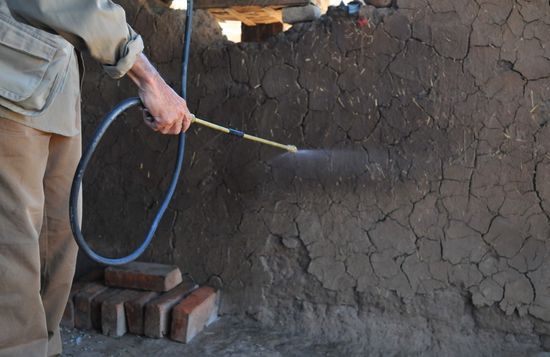
For vector and pest control, different methods and strategies are available and several of them involve the use of pesticides. Depending on the local context, public health authorities need to carefully design the most suitable integrated strategy, by managing pesticides according to WHO and national guidelines, in order to ensure human, animal and environmental safety and to prevent the development of insecticide resistance. This course guides participants through a process of decision making for implementation, by adopting best practices of public health pesticide management.
Photo credits: WHO/Fernando G. Revilla
语言: English
English
NTD
课程信息
Vectors and pests can transmit pathogens that cause severe diseases. These diseases especially affect vulnerable populations in tropical and sub-tropical regions, causing a high public health burden. For controlling such vectors and pests, integrated vector management is recommended, which involves the selection of the most context-appropriate and cost-effective combination of methods: environmental, biological, mechanical, and chemical. Public health pesticides are largely used but they also pose risks to human, animal, and environmental health, and often cause resistance in the target vectors and pests. Therefore, their use requires specific management practices to be followed throughout the entire lifecycle of these products, as well as strict legislation and regulation. The target audience for this course includes public health authorities and the managers, as well as technical staff of vector control programmes.
Course duration: Aproximadely 3 hours.
Certificates: A Certificate of Achievement will be available to participants who score at least 80% in the final assessment. Participants who receive a Certificate of Achievement can also download an Open Badge for this course. Click here to learn how.
你将学到什么
- Design and implement effective strategies for the control of a vast range of disease vectors and domestic pests in urban and rural settings
- Describe how to improve the management of public health pesticides throughout their lifecycle;
- Explain the methods and integrated strategies for vector and pest control, their cost-effectiveness, and sustainability; and
- Illustrate WHO’s policies, strategies, and guidelines for using pesticides in public health.
课程内容
Introductory module:
This introductory module presents the course objectives and structure.Module 1: Basics of vector-borne disease control:
By the end of this module, you will: describe the most common vector-borne diseases and the burden they cause; demonstrate an understanding of the essential components of disease epidemiology and disease transmission cycles; and critically evaluate the role of disease control strategies and health systems, and identify those appropriate in their contexts.Module 2: Vector biology, ecology, and control:
By the end of this module, you will: demonstrate an understanding of vector biology, behaviour, and ecology, and their significance for the transmission of disease pathogens, as a basis for selecting vector control interventions; and describe the options for vector control interventions for each type of vector.Module 3: Integrated vector management:
By the end of this module, you will: identify the key elements of Integrated Vector Management (IVM) and their significance in a local context; describe the process of planning and implementation of IVM; and illustrate the Global Vector Control Response 2017-2030.Module 4: Control of vectors and pests in the urban environment:
By the end of this module, you will: identify the major types of urban pests; describe the methods and strategies for pest control; and explain the problem of the illegal use of pesticides in urban areas.Module 5: Global aspects of vector control insecticide use:
By the end of this module, you will: describe the trends in the global use of vector control insecticides; explain the basics of pesticide management; and summarise the international policy instruments related to pesticide management.Module 6: Legislation and regulation of vector control insecticides:
By the end of this module, you will: illustrate the requirements in the legislation and registration of vector control insecticides; and comment critically on the shortcomings in the regulatory control of vector control insecticides.Module 7: Management of insecticides in vector control programs:
By the end of this module, you will: describe how organizational and institutional factors can influence the management of insecticides for vector control; and explain the requirements for the procurement, transport, storage, use of vector control insecticides, and disposal of pesticide waste.